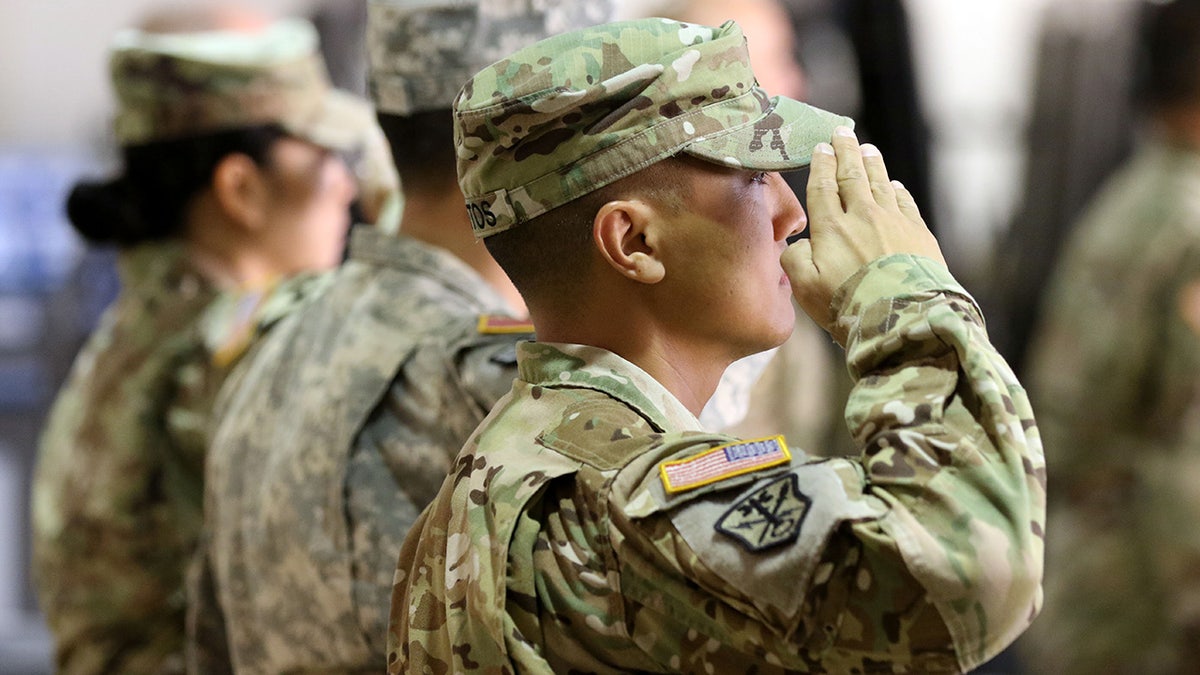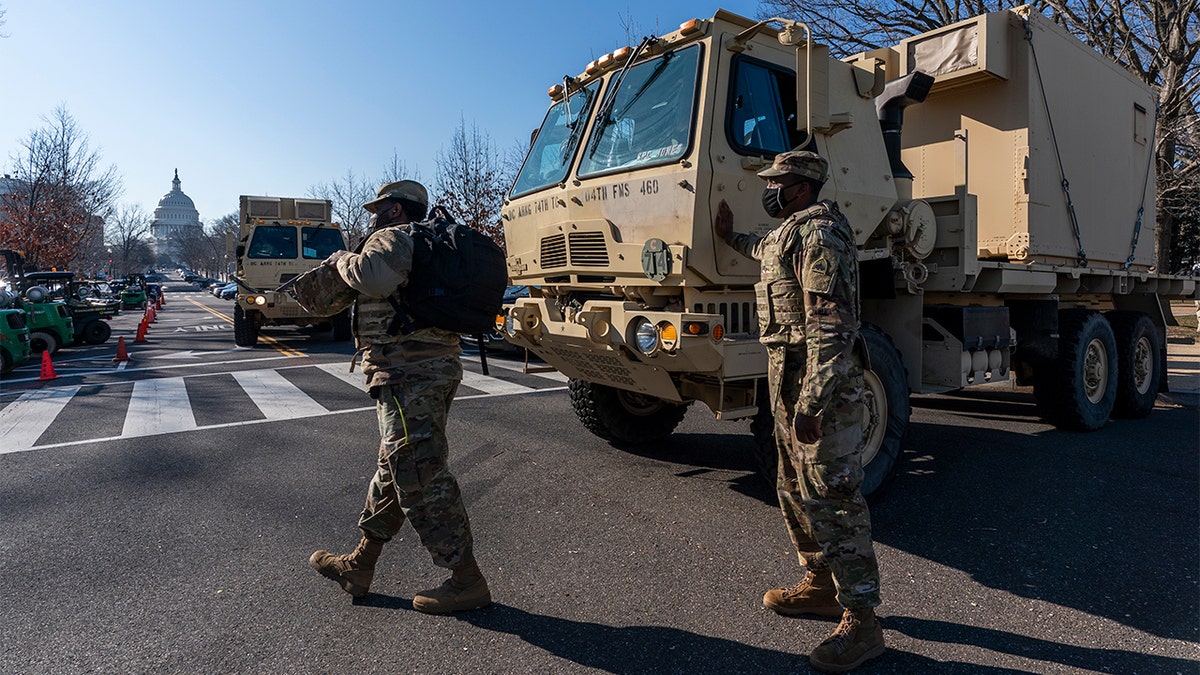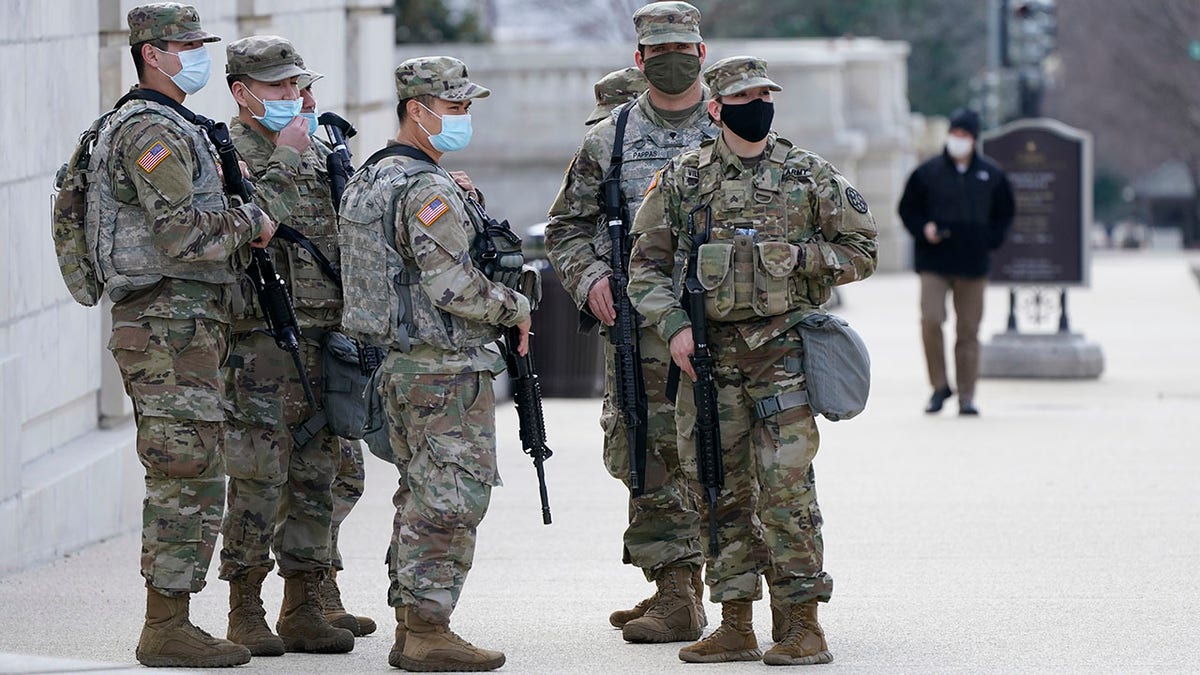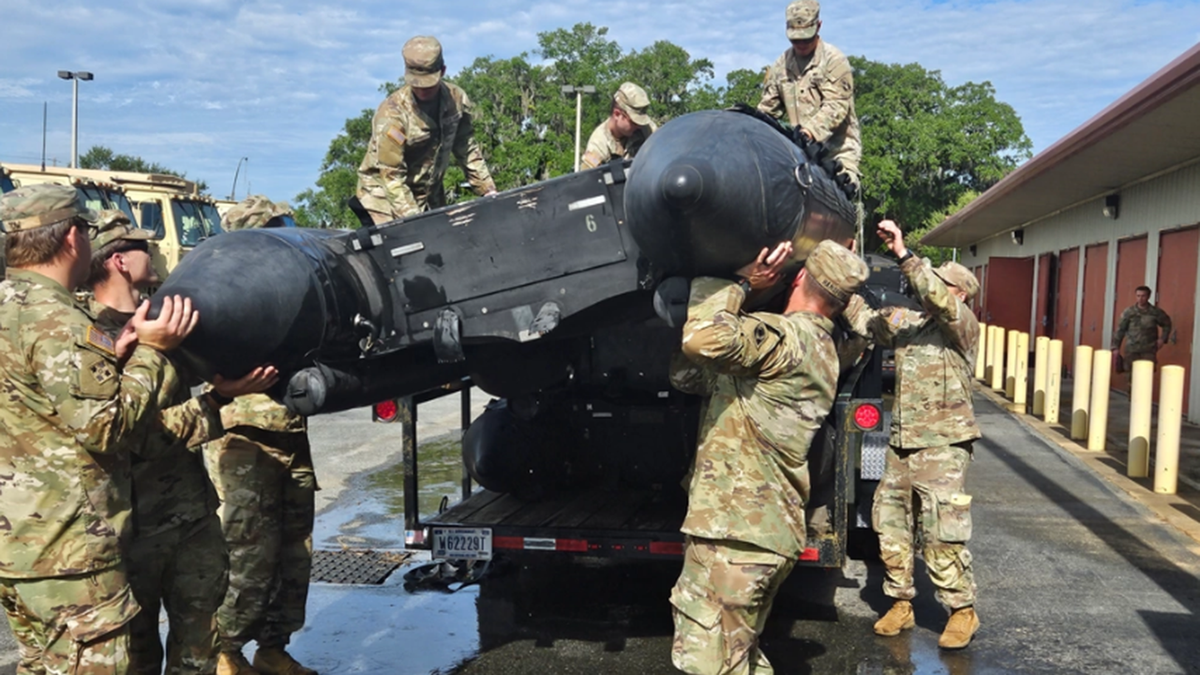Why is the US Army facing a recruiting crisis?
Fox News senior national security correspondent Jennifer Griffin has the latest on why the Army is expected to fall short of its 2023 goal on America Reports.
The National Guard is behind on paying enlistment bonuses to nearly 13,000 troops, including nearly 4,000 service members who have since left the service without receiving the bonuses they were promised at enlistment.
Thousands of Americans enter the National Guard every year with promises of bonuses as high as $20,000 for their part-time service, but the National Guard is behind on paying bonuses to roughly 6% of those service members owed the incentive, a National Guard official confirmed to Fox News Digital.
According to the official, around 9,000 service members who were promised bonuses for signing up have yet to receive the money.
The problem is widespread enough that an additional 3,900 service members who have already completed their service and have since left the military have also not received their bonus payment. Though the official noted that the "majority" of those "appear to have been ineligible due to an associated adverse action that was not lifted upon their separation."

Members of the Army National Guard in formation. (U.S. Army National Guard photo by Spc. Matthew A. Foster)
"If a soldier is flagged for an adverse action — being overweight, discipline action, etc. — the bonus is put on hold until he/she meets all qualifying standards (that were all part of the bonus contract.) and sometimes they simply don't do that," the official said.
The issue, first reported by Military.com and confirmed by Fox News Digital, has left many members frustrated with the process.
"I was really relying on this money to help with moving into a new place with my wife," one soldier told Military.com, noting he was supposed to receive half of his $20,000 enlistment bonus a year ago. "I did my end of things, and this is a really bad introduction to the Army, not taking care of people."
Bonuses are typically paid out after a member completes initial entry training, with the National Guard considering payments late if it has been more than 30 days since the training was completed and no payments have been made. But there is also no official policy dictating when payments have to be made, the official told Fox News Digital, leaving the service members with few options for raising concerns when payments become overdue.

Members of the District of Columbia National Guard secure the perimeter around the Capitol Jan. 13, 2021, in Washington, D.C. (AP Photo/Manuel Balce Ceneta)
"While there is no explicit policy that requires soldiers are paid their bonus within 30 days of eligibility, it is the ARNG G1's targeted goal to achieve this. Right now, the current timeline for processing is around six months," the official said.
The official added that "nearly 94% of our soldiers eligible to receive an enlistment bonus have received it."
"We are working very hard to reconcile the remaining 6% because we hold ourselves to higher standards and believe one overdue payment to an otherwise eligible soldier is one too many," the official said.
The official noted that those who have been separated for less than one year who believe they should still be eligible for a bonus payment can "reach out to their state G1/personnel directly," while those who have been separated for more than a year "need to go through DFAS and submit a ticket under claims or bonus."

National Guard troops keep watch on the Capitol March 4, 2021, on Capitol Hill in Washington, D.C. (AP Photo/Jacquelyn Martin)
"Soldiers who are still in their unit who are fully qualified and have not received their bonus can alert their first-line leader and personnel service section to the issue so they can take action to get it resolved," the official added.
The official told Fox News Digital that part of the issue was the Army National Guard Incentive Management System, or GIMS, was rolled out in 2012 to streamline the process and avoid fraud and abuse, but it crashed in 2018 and was inoperable for about 10 months. A second 10-month outage happened in 2021, the official noted, causing a complicated manual process that resulted in backlogs.
"GIMS functionality has significantly improved over the last two years, evident by the number of transactions processed year over year," the official said.
Commanders in some states have found staff attempting to track enlistment bonuses on dry-erase boards or email traffic and handwritten notes, according to the Military.com report. Meanwhile, those responsible for many of the administrative tasks at the local level are performing jobs unrelated to their actual career field and are forces to juggle "multiple clunky online systems that the Guard relies upon."

Florida National Guard soldiers in Tallahassee prepare boats Aug. 29 for search and rescue operations. (Spc. Christian Wilson/107th Mobile Public Affairs Detachment )
Some of those who have not received their bonuses told Military.com that many of the service members tasked with administrative functions are giving soldiers incorrect information, including telling members their state was out of money due to expensive training rotations.
CLICK HERE TO GET THE FOX NEWS APP
"There is frankly a lot of misinformation on the [unit] level. It isn't their fault, and it's something I'm trying to fix," one state's adjutant general told Military.com. "The soldiers are frustrated. Of course … why would they stick around? Sometimes people have been lazy too. The soldier shouldn't be coming to us … for their money. We should just pay our bills on time."
The National Guard official told Fox News Digital the service "continues to monitor and track outstanding bonuses by state/territory and actively makes every effort to assist states in decreasing their aggregate workload."
"The ARNG G1 incentives oversight team conducts monthly calls with all 54 state incentive managers and conduct state assistance visits, which help states with best practices as well as provide targeted action to help reduce their backlog," the official said.











































